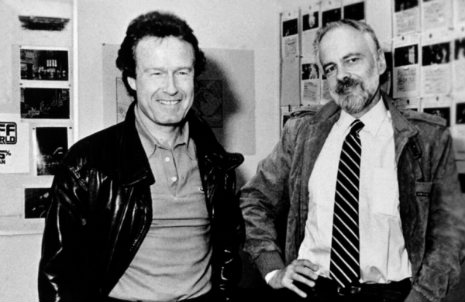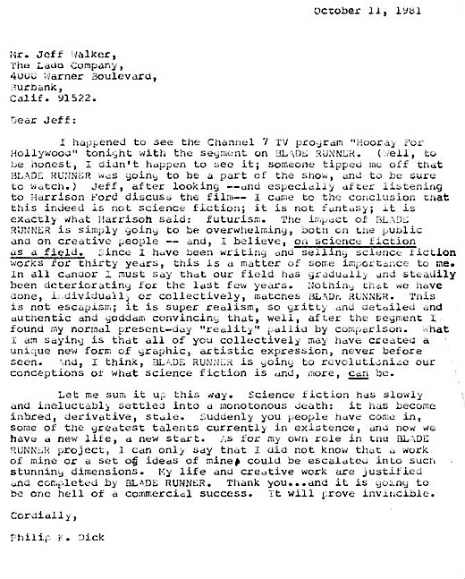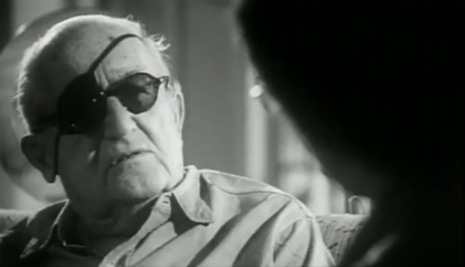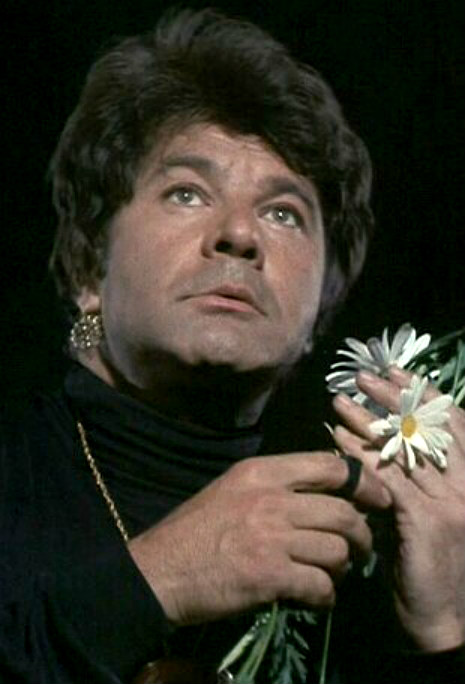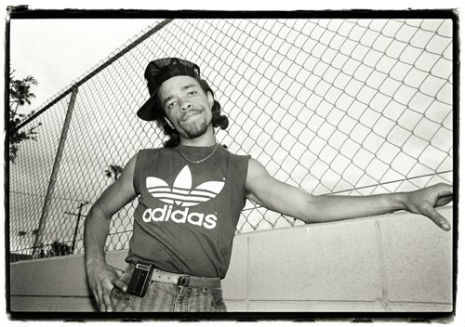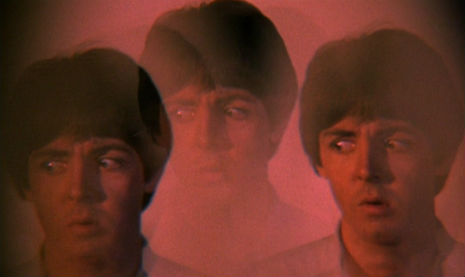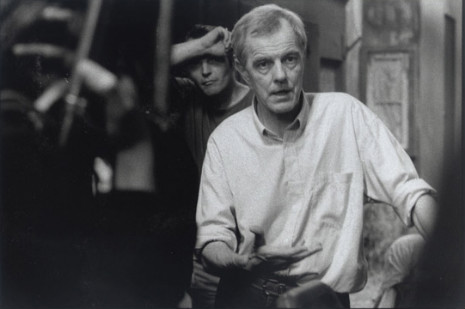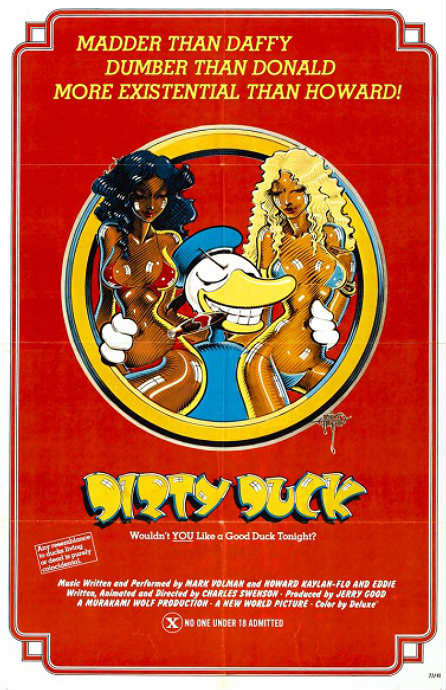
Dirty Duck (aka Down And Dirty Duck) released in 1974 was a low-budget attempt to cash-in on the success of Fritz The Cat that manages to stake out its own turf in the X-rated cartoons featuring anthropomorphic animals genre. Directed by Charles Swenson and featuring the voices and music of Flo and Eddie, as well as Aynsley Dunbar, Don Preston and other members of The Mothers Of Invention, Dirty Duck is to Daffy what Charles Bukowski is to Ogden Nash.
From The Deuce:
Willard Eisenbaum (Voiced by Howard Kaylan) is a day-dreaming insurance worker who thinks he’s about to have the day of this life when he expresses his love to a fellow worker. When Willard’s intentions fail to materialize, he’s told by his boss to investigate an insurance claim from the elderly Martha (Lurene Tuttle). When Martha suddenly kicks the bucket during Willard’s visit, her will says that the one who causes her death (Confirmed by a Ouija board) will have to overlook her duck…Make that a grown, talking Duck! (Voiced by Mark Volman) Within seconds, both Willard and The Duck are hitting the streets, brothels, and tons of indescribable locations to get laid. By the time the film ends (Which is rather quickly) Willard will appear to be in love…But with whom? Or What?”
Within the raunchy confines of Dirty Duck’s universe lurks many pop culture references, including several that conjure up the spirit of Frank Zappa.
There are a few Zappa references peppered throughout the movie. For one, the duck is roughly the same character that Jeff Simmons morphed into in 200 Motels. At one point the main character and the duck are lost in the desert, and the duck is explaining how he came to be a duck. He says he used to be a TURTLE, but that wasn’t too happening, so he got some advice from his MOTHER and he just sort of FLO’d from there. If by any chance these references are too subtle for the more chemically aided members of the audience, at this point a cartoon version of Frank Zappa’s grimacing visage is looming over the entire scene, having just risen like the sun over the horizon. Hereupon Willard says: “Oh, Eddie, you have GOT to be kidding”, in reference to Zappa’s song Eddie Are You Kidding?. Later, 200 Motels is specifically namedropped. It’s almost as if this movie is a sequel to 200 Motels, sans Zappa involvement.” P. Neve
“You can’t do this to me! I was at Woodstock in ‘69. I saw “200 Motels”! I know who I am!” Dirty Duck.
Its not surprising that Dirty Duck evokes 200 Motels. Both films were produced by Murakami-Wolf Productions, who also produced the Harry Nilsson flick The Point.
Dirty Duck is a foul fowl so be prepared for some freaky, offensive and politically incorrect humor. This is one fucked-up duck.








